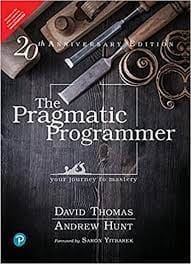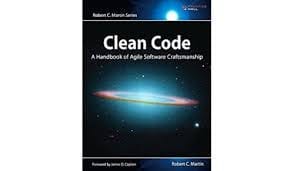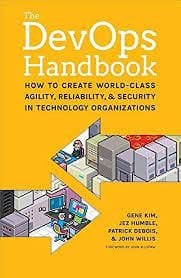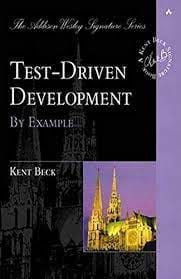7 Books Every Software Engineer Must Read In 2023
Become smarter, advance your career and stand out of the crowd
Hey there 👋 - Amrut here!
Happy Sunday to all working hard towards meta-skills mastery!
Are you struggling to learn key software engineering concepts despite watching many videos, reading technical blogs, doing hands-on projects, and subscribing to newsletters?
I have been there, and it is frustrating.
As I have progressed in my 9+ years tech career, I have come to realize there are 3 ways of learning anything complex:
Learning by doing hands-on projects through courses and videos.
Learning from the experience of your peers.
Learning by reading high-quality books.
While the first two are good ways of learning something, I have always leaned on reading high-quality books that deeply explain complex engineering concepts.
This becomes important as you progress to more senior roles in your career, where you will talk to non-technical stakeholders.
Explaining highly technical and advanced concepts in easy-to-understand language will be crucial. And to do that, you need to have a solid understanding of the fundamental concepts.
Frankly, this will distinguish you from others running on the tutorials treadmill.
High-quality engineering books are the only source.
In today’s newsletter, I will highlight 7 books every software engineer must read to become smarter, advance your career and become more confident in your technical skills.
Let’s dive in!
7 Software Engineering Books To Read As Soon As You Can
The Pragmatic Programmer by David Thomas and Andrew Hunt
The book provides invaluable insights into the journey towards becoming a successful software engineer.
The authors offer practical strategies and best practices drawn from their extensive experience.
They delve into topics such as code quality, design, debugging, testing, and optimization, presenting them in a digestible and engaging manner.
They also emphasize "soft skills" such as critical thinking, problem-solving, and continuous learning, which are vital in modern technology.
Perhaps most importantly, the book champions an adaptive mindset, urging engineers to embrace change rather than fear it. It equips developers with the tools and attitudes to tackle complex problems, maintain high performance, and produce top-notch, reliable software.

Clean Code by Bob Martin
This book goes beyond mere programming—it's about writing easily understandable, maintainable, and flexible code, a skill paramount to anyone serious about their craft.
The book outlines principles, patterns, and practices that can significantly improve software quality.
The heart of the book lies in its practical approach. It provides real code examples, illustrating the transformation of a bad code into a good one. These examples reinforce the techniques for writing clean, efficient, and elegant code.
The book also provides useful insights into the principles of functions, error handling, formatting, comments, and unit tests. It also addresses higher-level software architecture issues, offering advice on modularity, flexibility, and the cost of change.

Algorithms by Robert Sedgewick and Kevin Wayne
The book covers the most important algorithms and data structures in use today, providing the basis for designing and analyzing efficient software and understanding the inherent trade-offs involved when choosing to implement different algorithms for a given task.
The authors present each concept in a straightforward, easy-to-understand manner.
They make complex topics like sorting, searching, graph processing, and string processing accessible and understandable, not just on a practical level but also on a theoretical one.
This approach aids the reader in genuinely comprehending the logic behind each algorithm and its implications for performance.

Designing Data-Intensive Applications by Martin Kleppman
This book is vital for any software engineer dealing with data systems.
Kleppmann delves into the architecture of systems that store, process, and retrieve data.
He guides readers through a wealth of concepts, including consistency, replication, partitioning, transactions, and the intricacies of distributed systems.
This holistic approach ensures that readers grasp these components' interconnectedness and roles in building resilient, scalable, and maintainable applications.
The book is filled with practical examples, providing readers with an understanding of the 'how' and the 'why' behind different data systems.

Fundamentals Of Software Architecture by Mark Richards and Neil Ford
This book is a comprehensive manual exploring the principles, practices, and intricacies of software architecture.
Richards and Ford delve into various architectural styles, such as microservices, service-based, and event-driven architectures.
The book's strength lies in the balanced blend of theory and practice.
Real-world examples and case studies bring the concepts to life, offering the reader a practical understanding of how architectural decisions impact software quality.
Moreover, this book offers insights into evolutionary architecture, equipping software engineers with the knowledge to build systems that adapt to changing requirements and environments.

The DevOps Handbook: How to Create World-Class Agility, Reliability, and Security in Technology Organizations by Gene Kim
The book delves deep into the philosophies, tools, and practices that underpin the DevOps methodology.
The DevOps Handbook is valuable as it showcases how high-performing organizations successfully implement DevOps principles to accelerate software delivery, increase reliability, and improve security.
It shares stories from companies like Google, Amazon, and Netflix, illustrating how DevOps culture has enabled these organizations to innovate rapidly, scale effectively, and maintain high-quality standards.
Key concepts such as continuous integration, continuous delivery, automated testing, infrastructure as code, and the importance of a collaborative culture are presented in a straightforward, digestible manner.
The authors also delve into the challenges and pitfalls of DevOps adoption, providing valuable guidance to navigate these potential obstacles.
They emphasize learning from failures, creating a culture of experimentation, and sharing best practices, underlining the importance of a growth mindset in DevOps culture.

TDD by Example by Kent Beck
Kent Beck, a renowned software engineer and one of the creators of the Agile development movement, presents a hands-on approach to understanding TDD.
He takes readers through building software using TDD, detailing the practice of writing tests before coding.
This approach helps focus on the requirements before implementing, leading to cleaner design, better-structured code, and fewer bugs.
The book is structured around two comprehensive case studies, providing real-world context to the concepts.
By showing how the code evolves through the TDD process, Beck demonstrates the cycle of writing tests, writing the code to pass the tests, and refining the code.
Beck also addresses potential pitfalls and obstacles in implementing TDD, offering valuable insights to overcome them.
Moreover, he discusses how TDD affects design and how to use it to improve system architecture, underlining its role in producing resilient and easy-to-modify software.

2 Tweets of the week
Whenever you’re ready, there are 3 ways I can help you:
Are you thinking about getting certified as a Google Cloud Digital Leader? Here’s a link to my Udemy course, which has helped 445+ students prepare and pass the exam. Currently, rated 4.89/5. (link)
I have also published a book to help you prepare and pass the Google Cloud Digital Leader exam. You can check it out on Amazon. (link)
Course Recommendation: AWS Courses by Adrian Cantrill (Certified + Job Ready):
AWS Solutions Architect Associate (link)
AWS Developer Associate: (link)
ALL THE THINGS Bundle: (link)
Note: These are affiliate links. That means I get paid a small commission with no additional cost to you. It also helps support this newsletter. 😃
Thank you for investing your time in reading this post.🙏
I'm always looking for topics that resonate with my audience. If there's a specific subject you'd like to know more about or discuss, I welcome you to reply right here.
Please know that each message I receive is read and valued.
Your feedback matters! I genuinely appreciate your thoughts on this issue. Your comments, praise, criticism, and suggestions all play a pivotal role in shaping my content.
Together, we can make this a fruitful and enjoyable exploration of knowledge.
And, if you found value in this newsletter issue and think others might too, it would mean the world to me if you could take a few moments to share it with your loved ones, colleagues, friends, or anyone who might benefit.
Let's keep the conversation going, keep learning, and amplify the power of shared knowledge!

